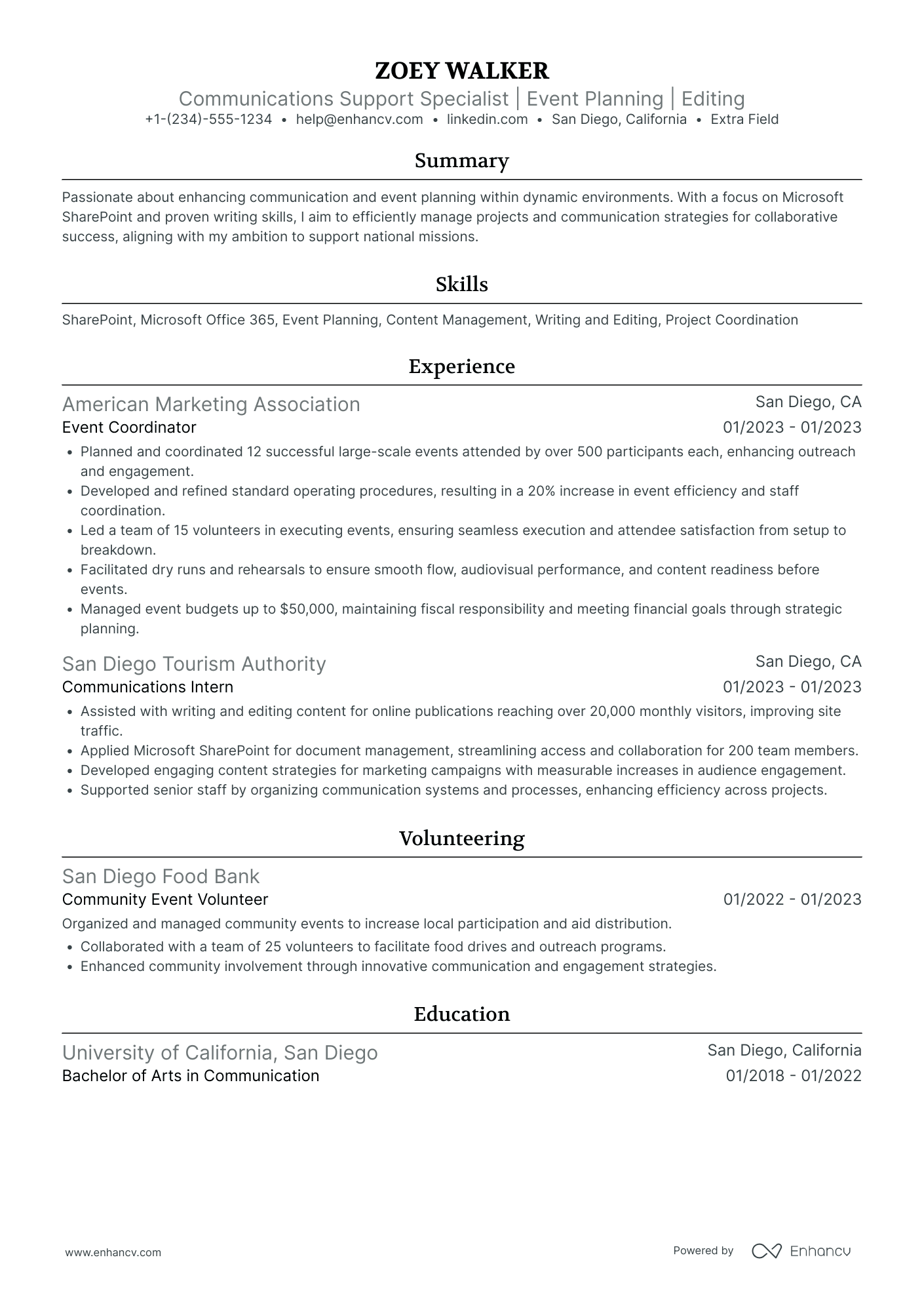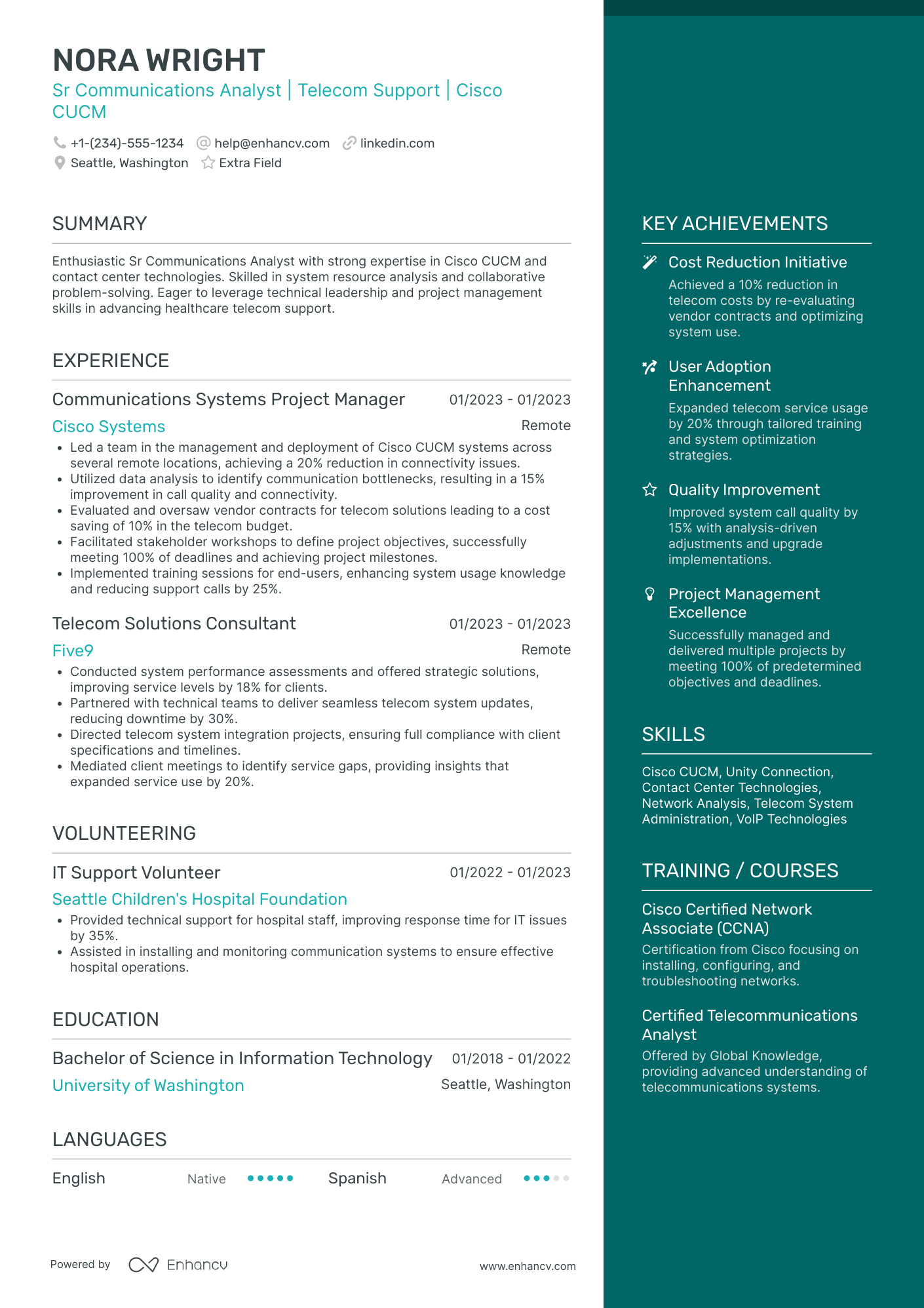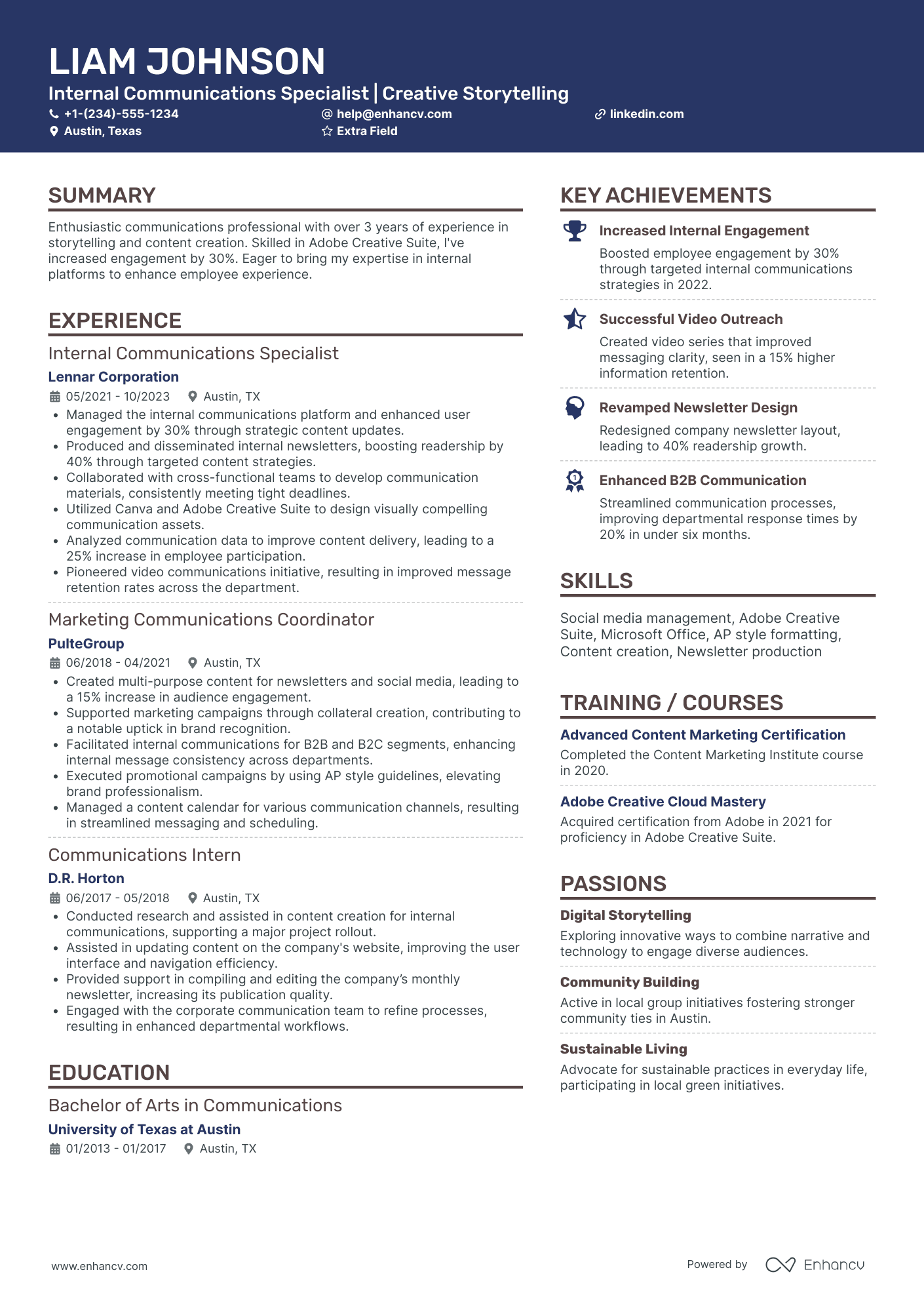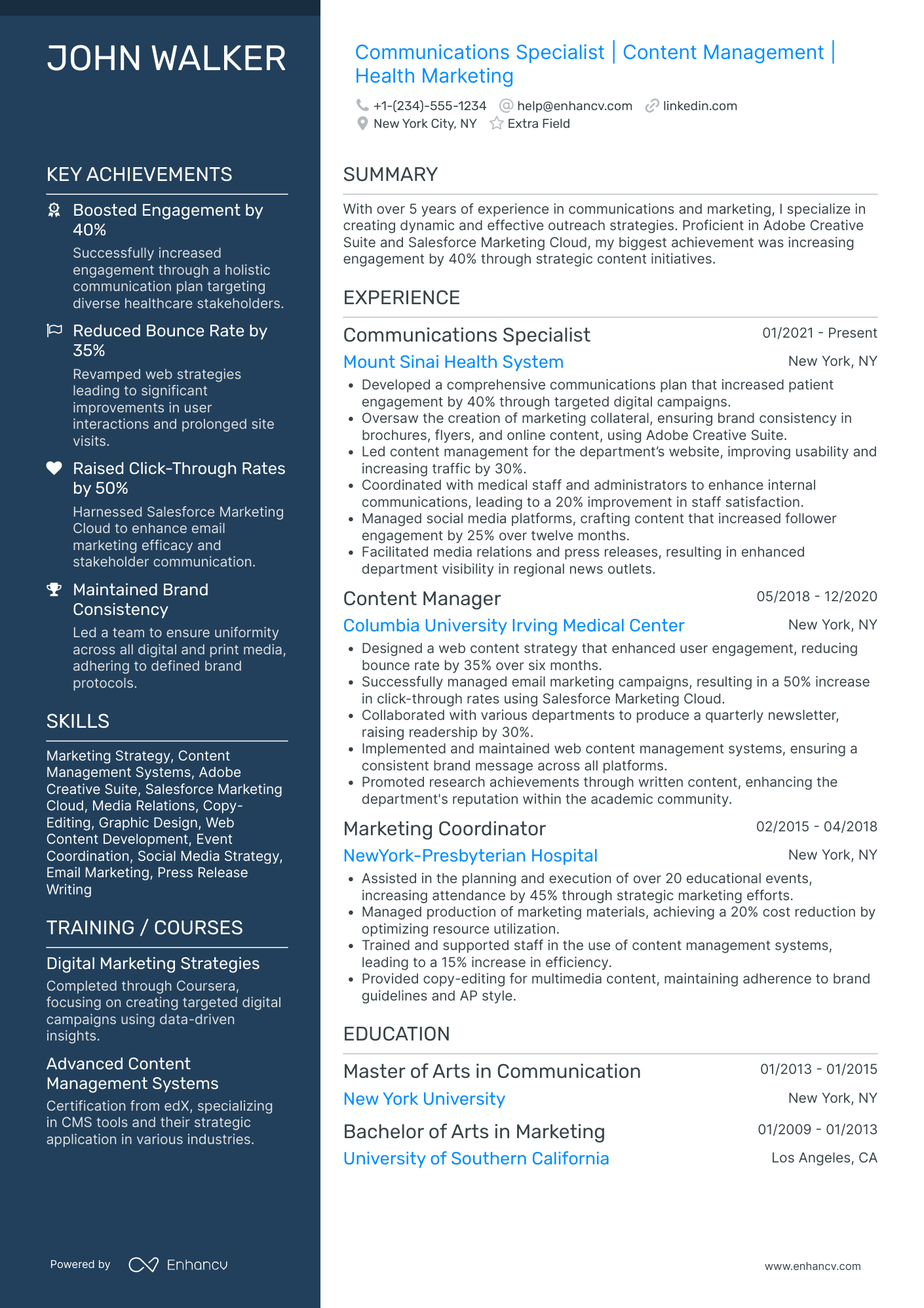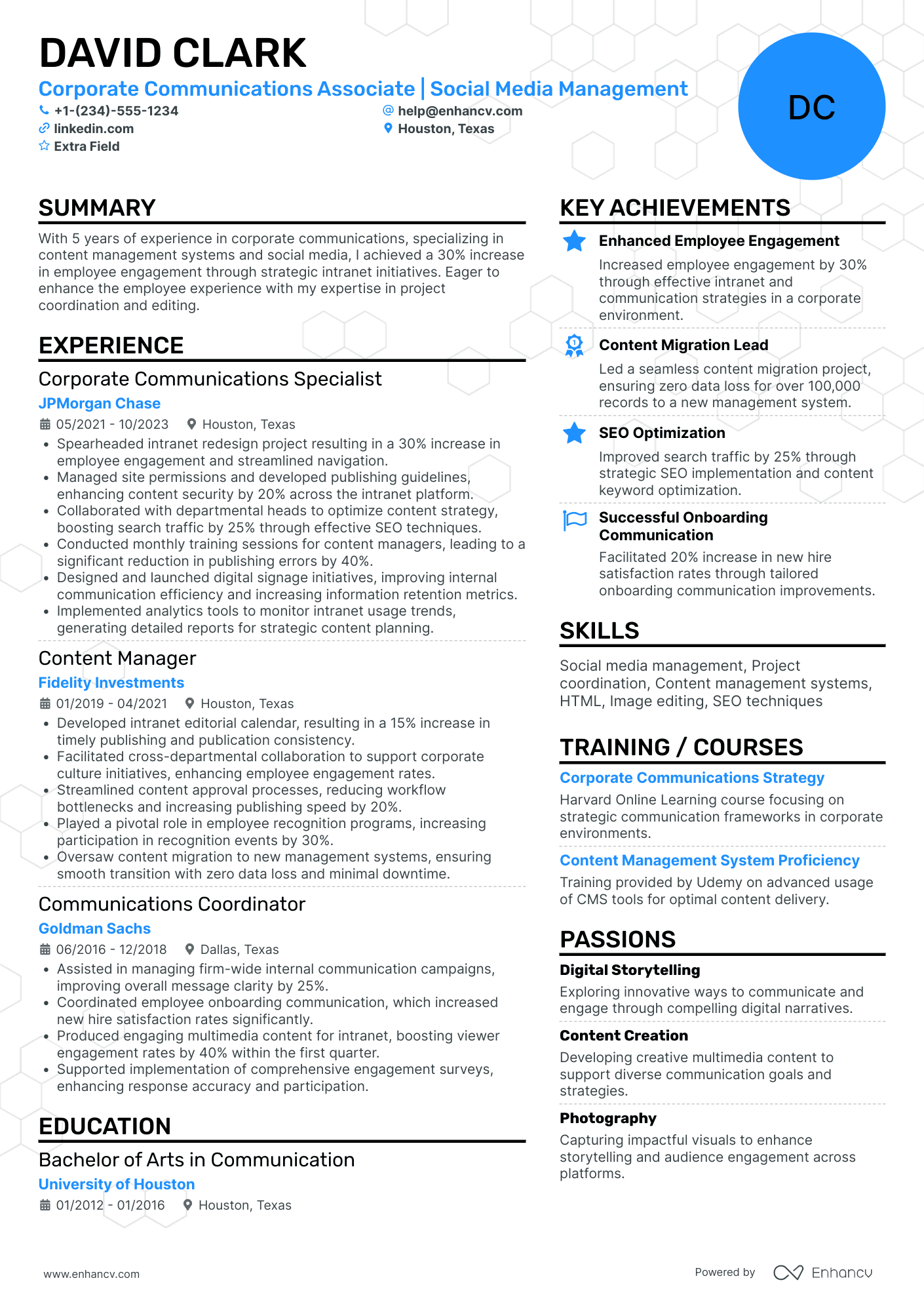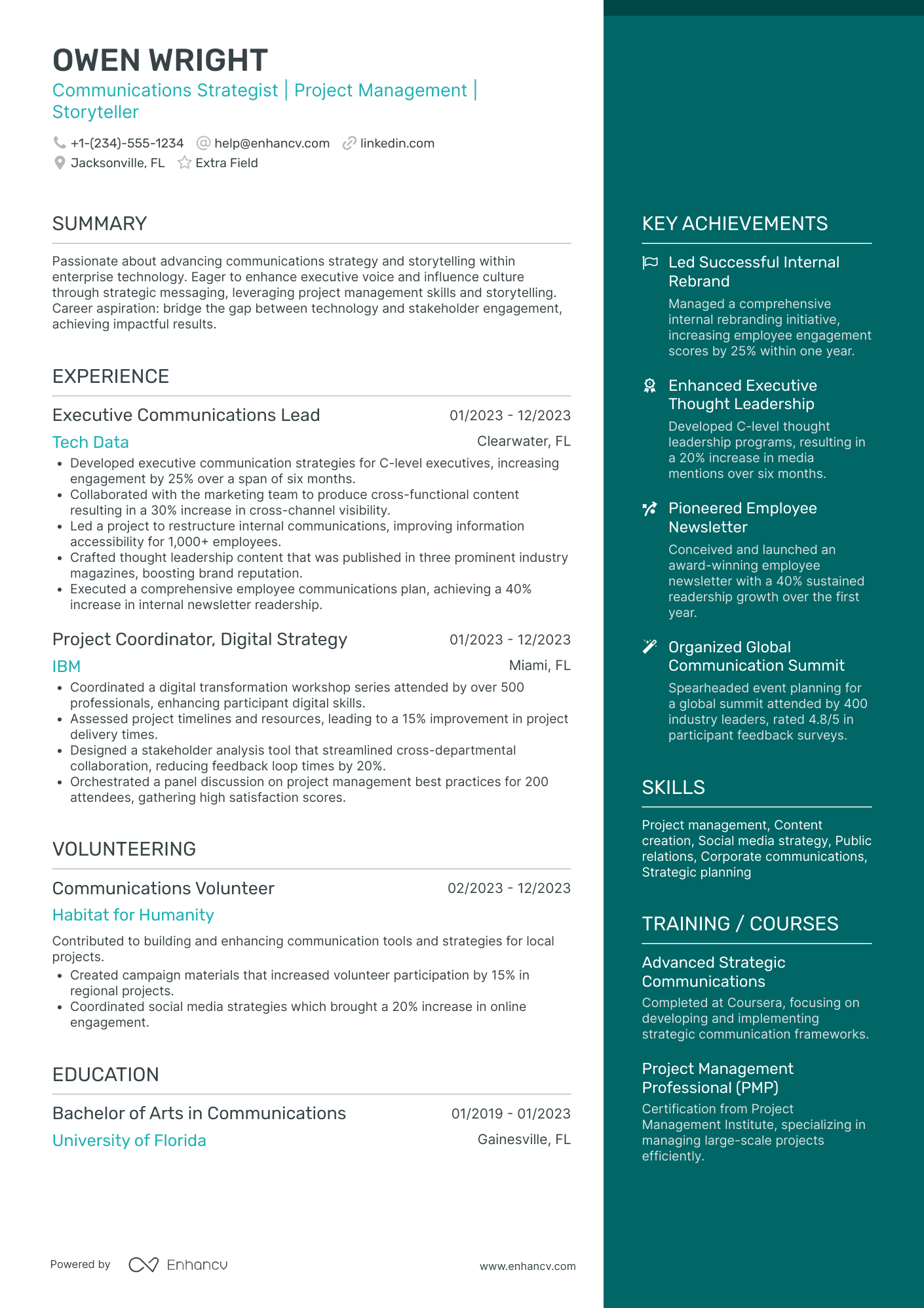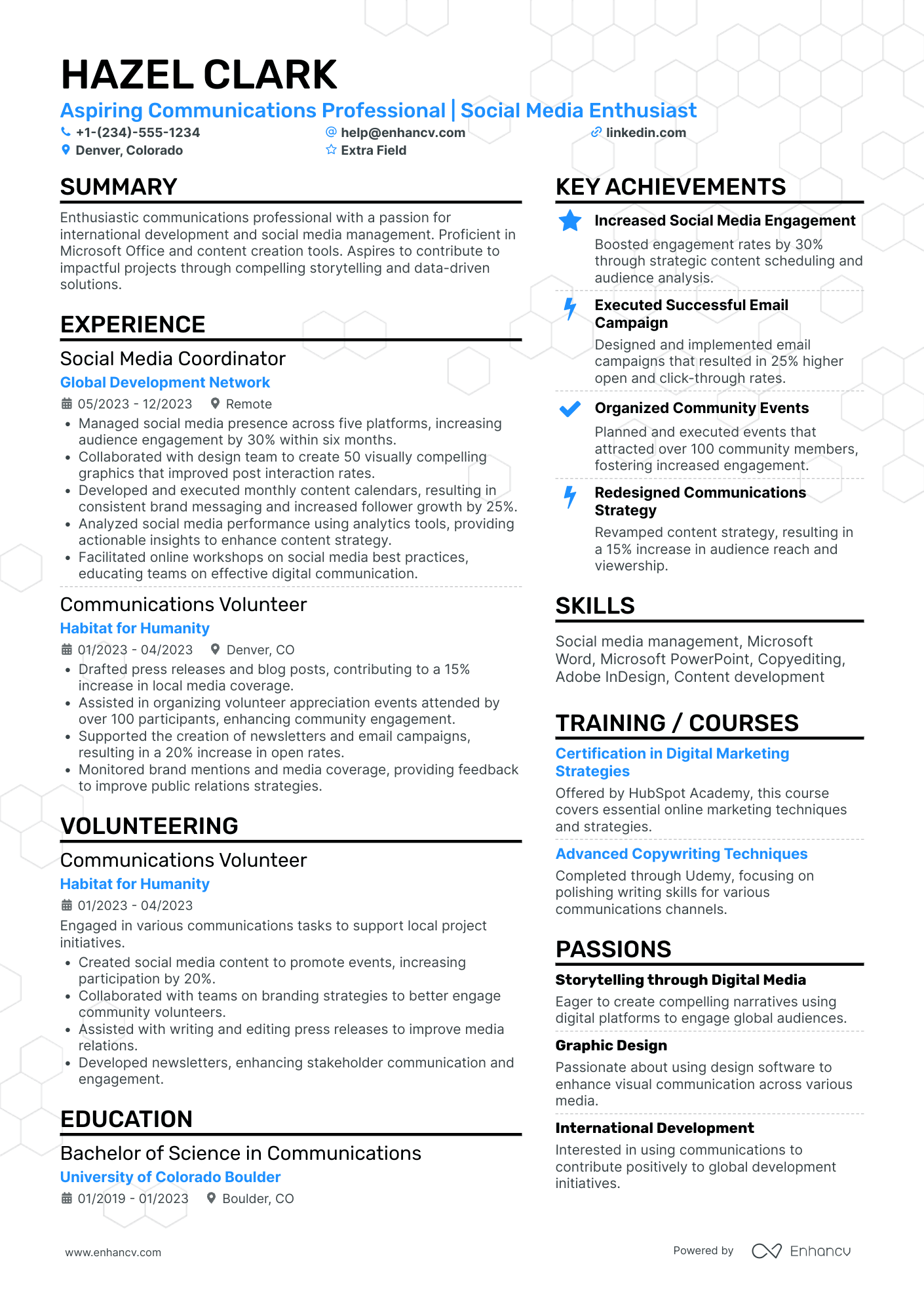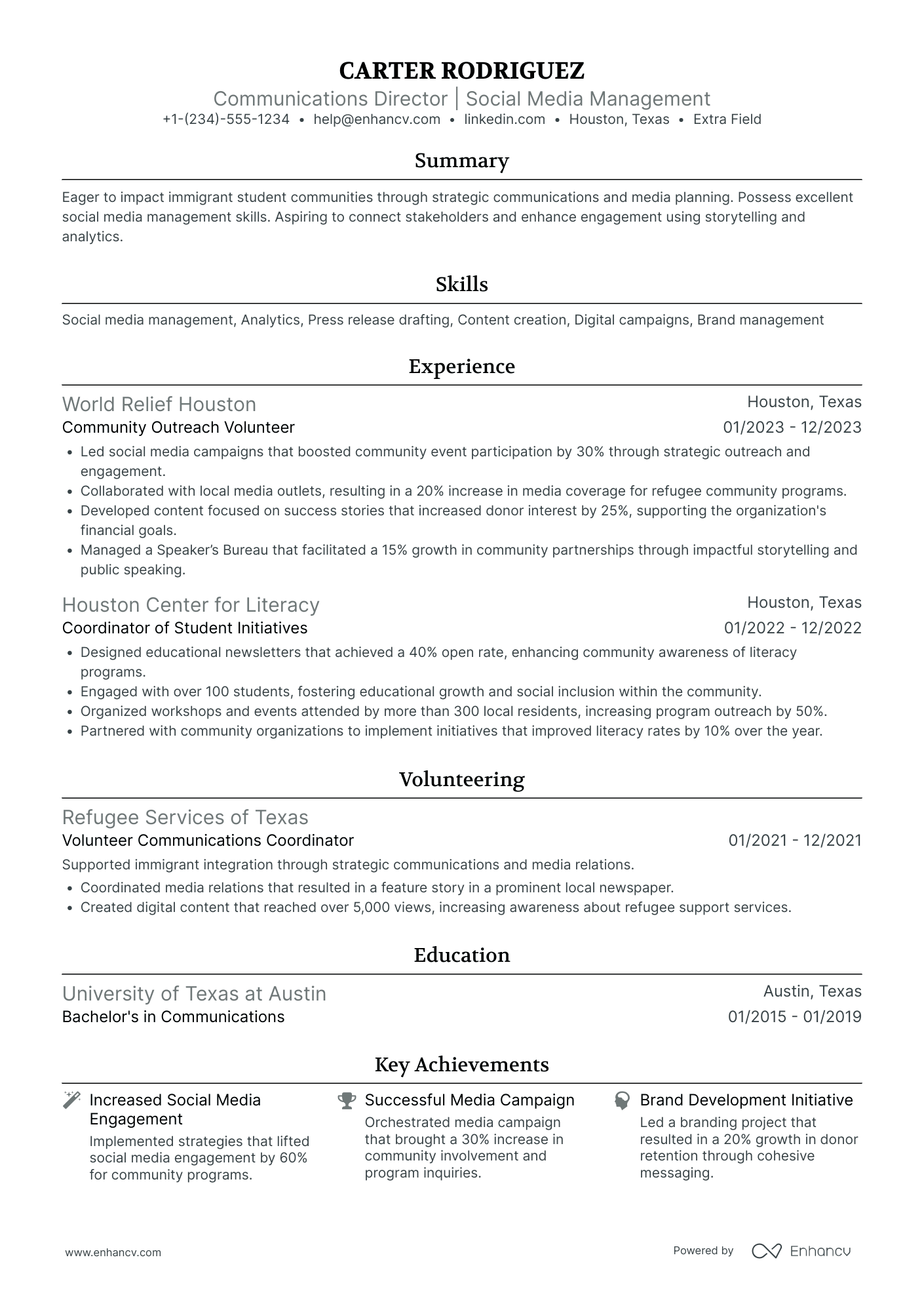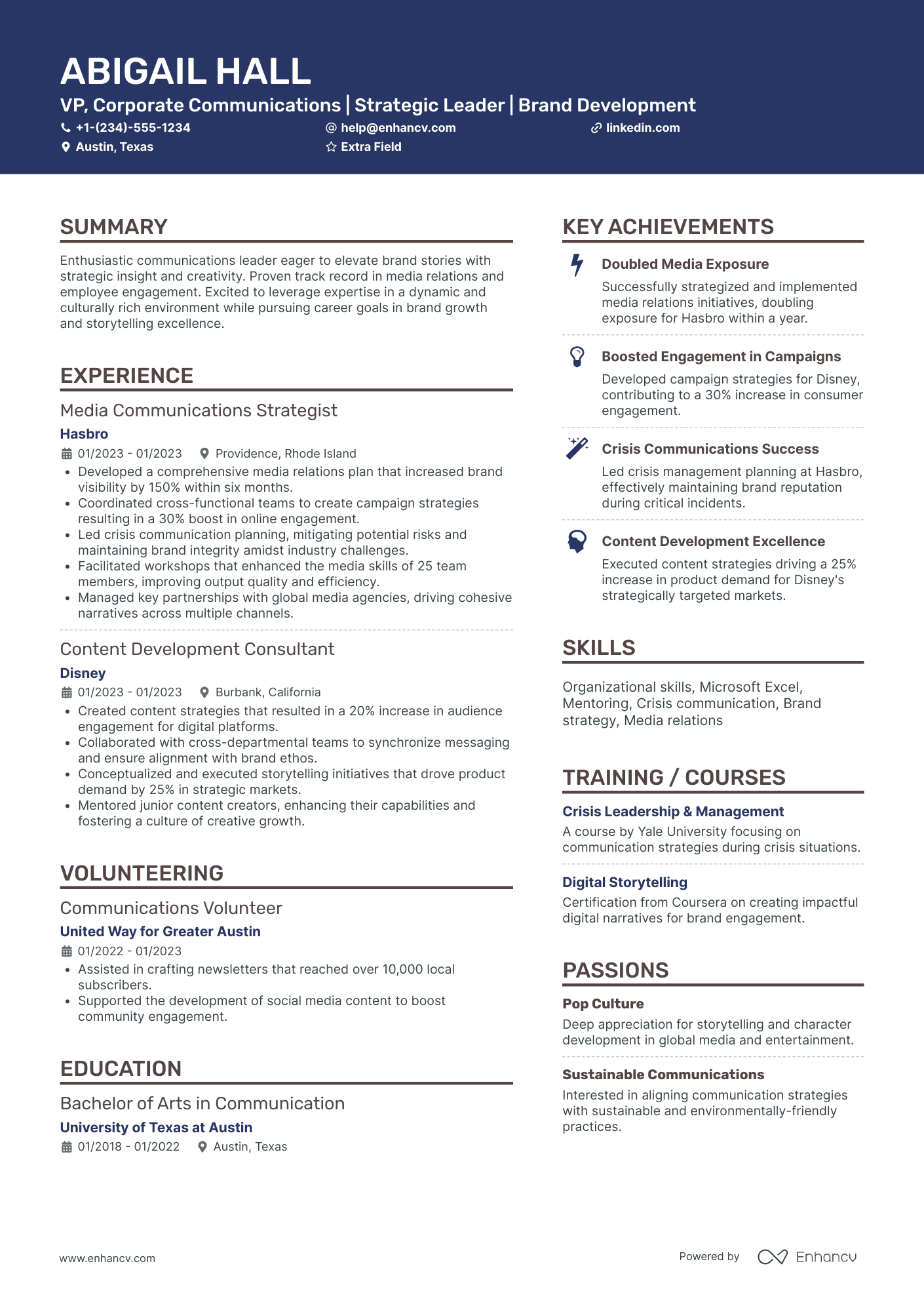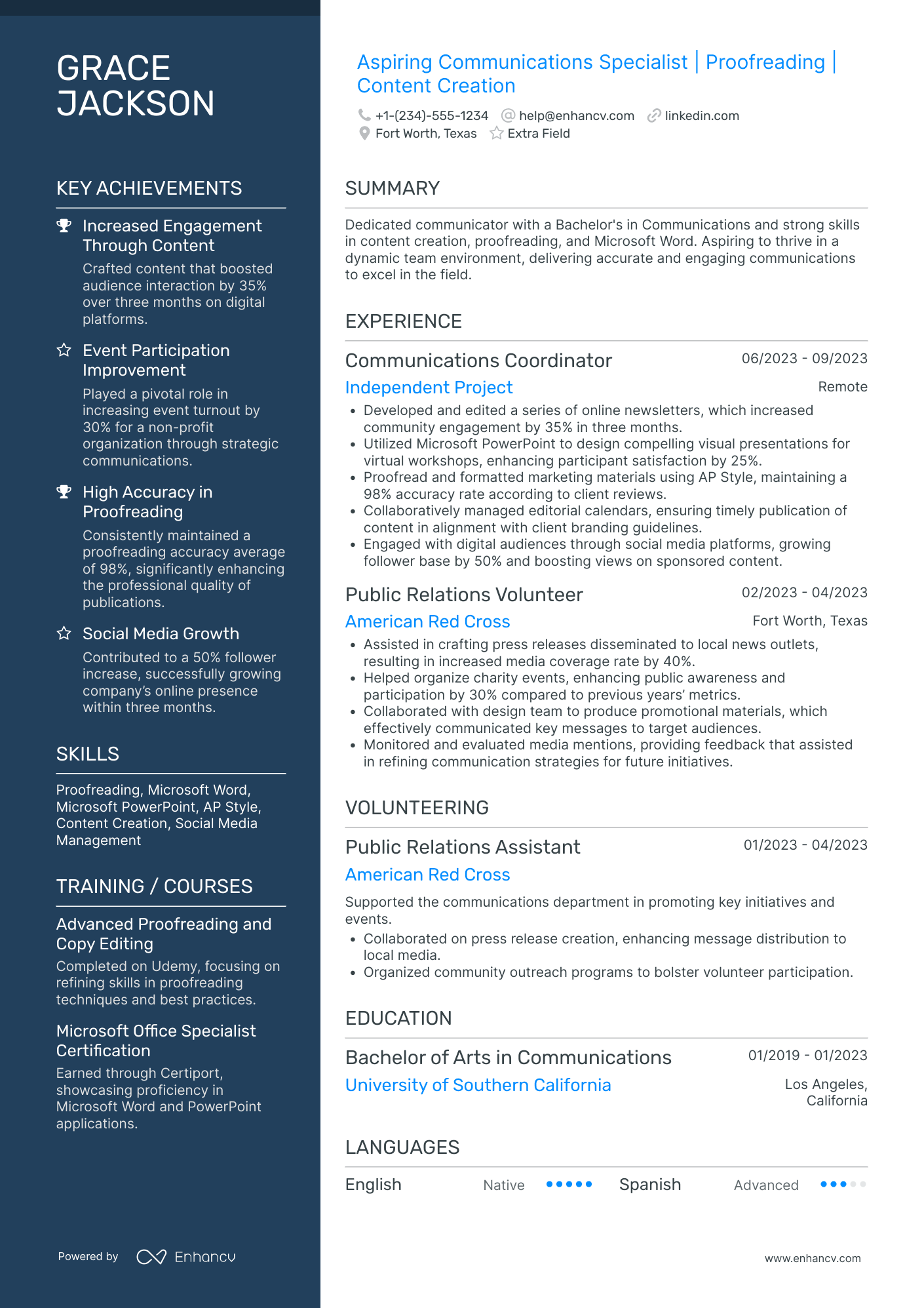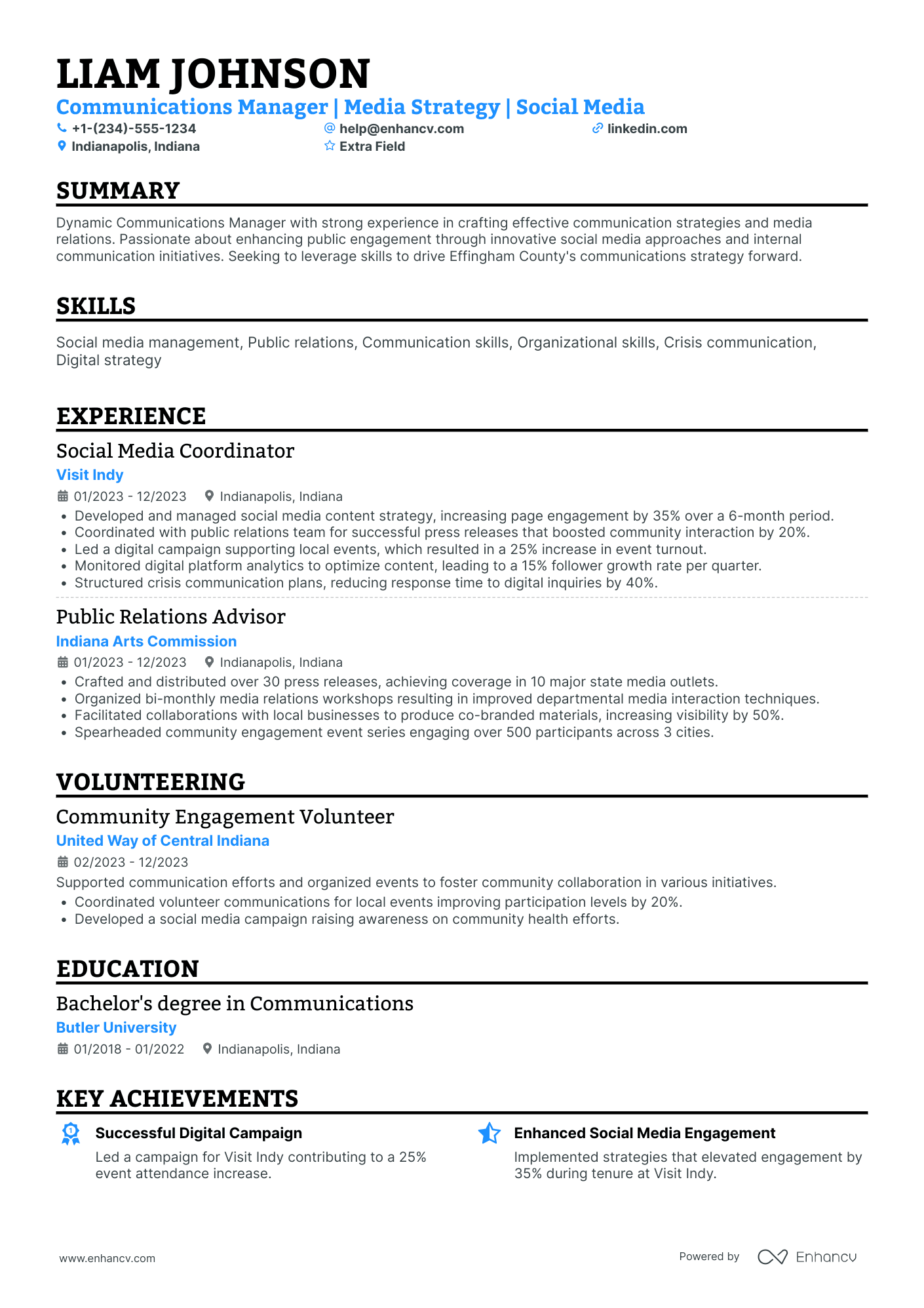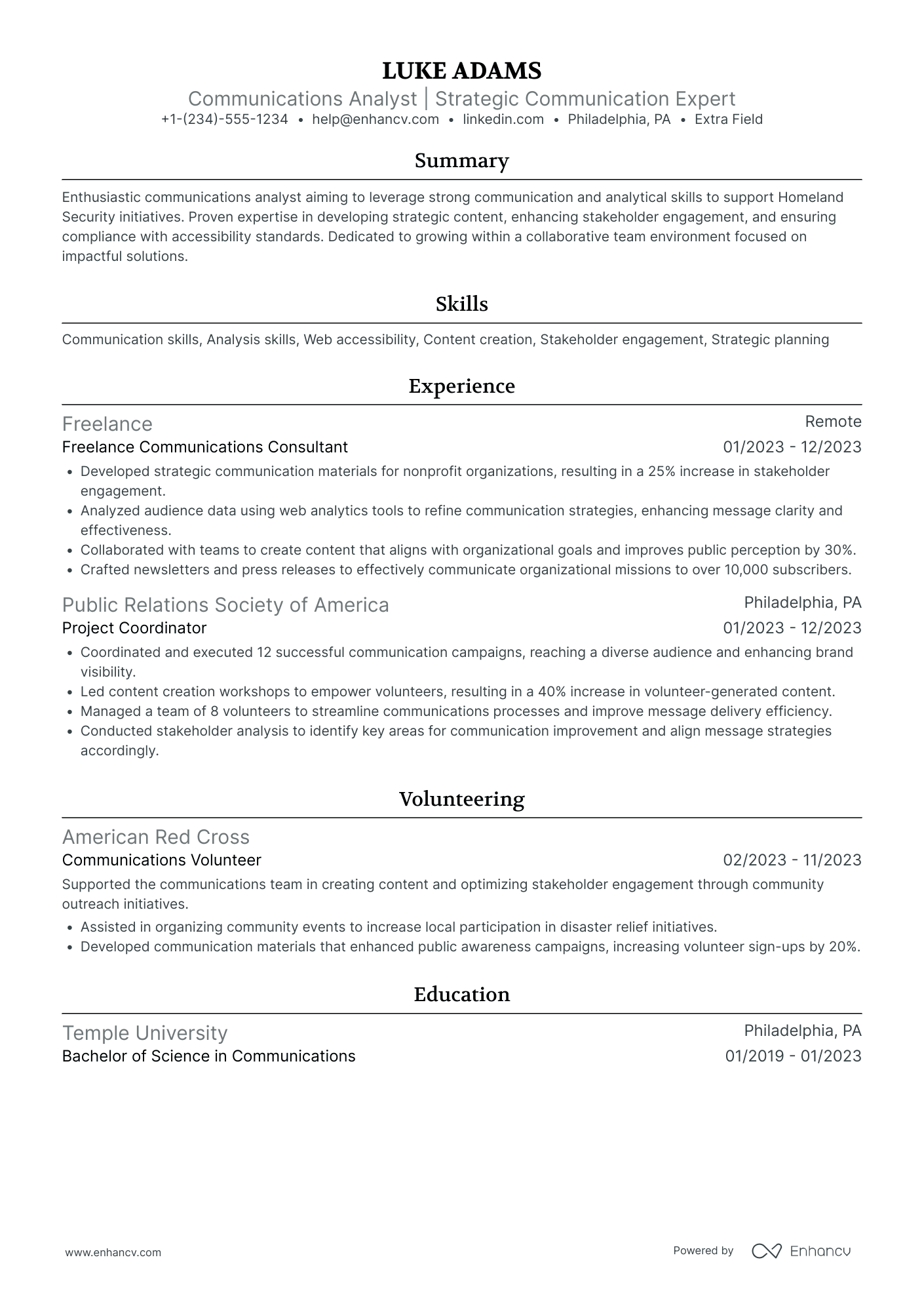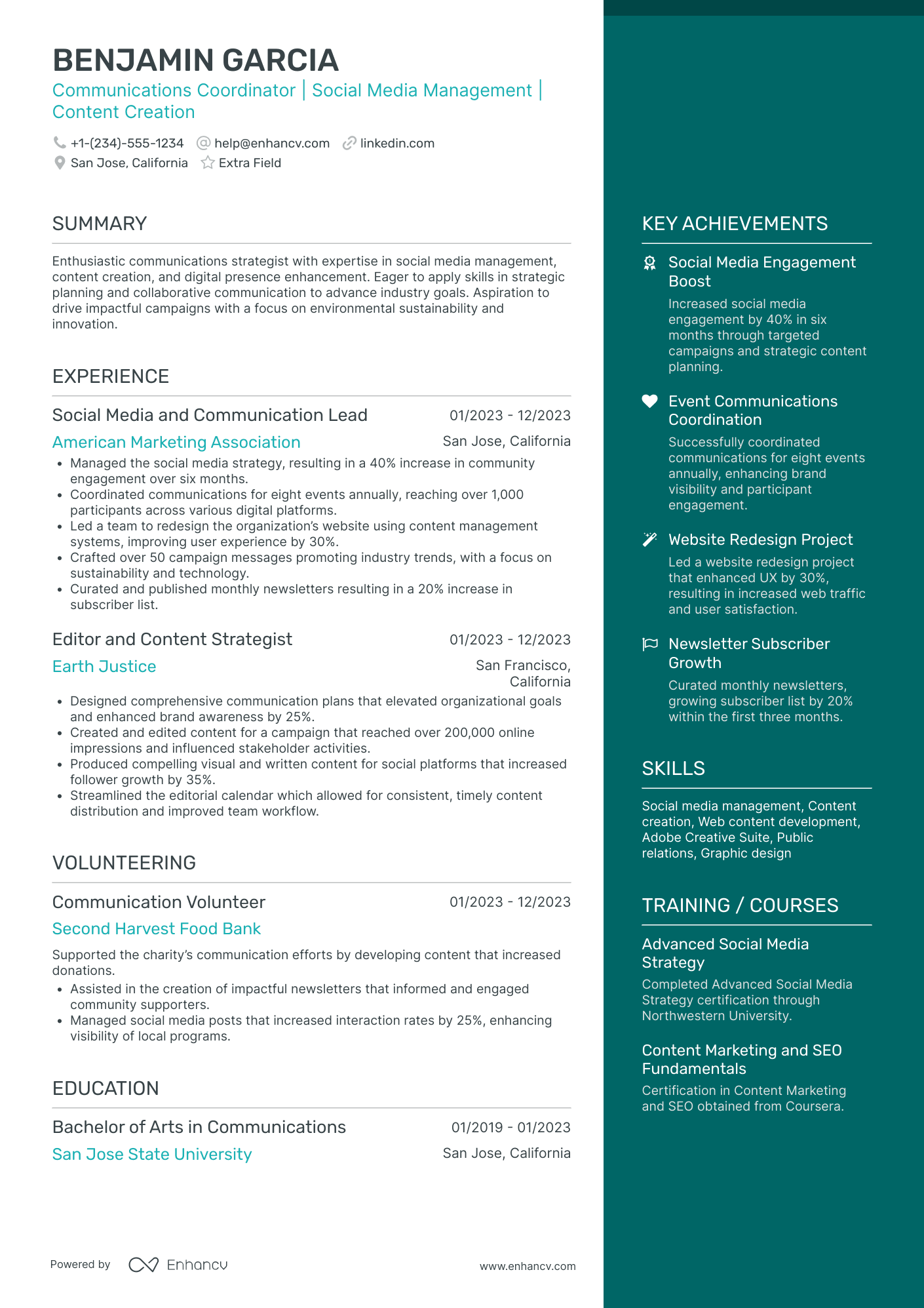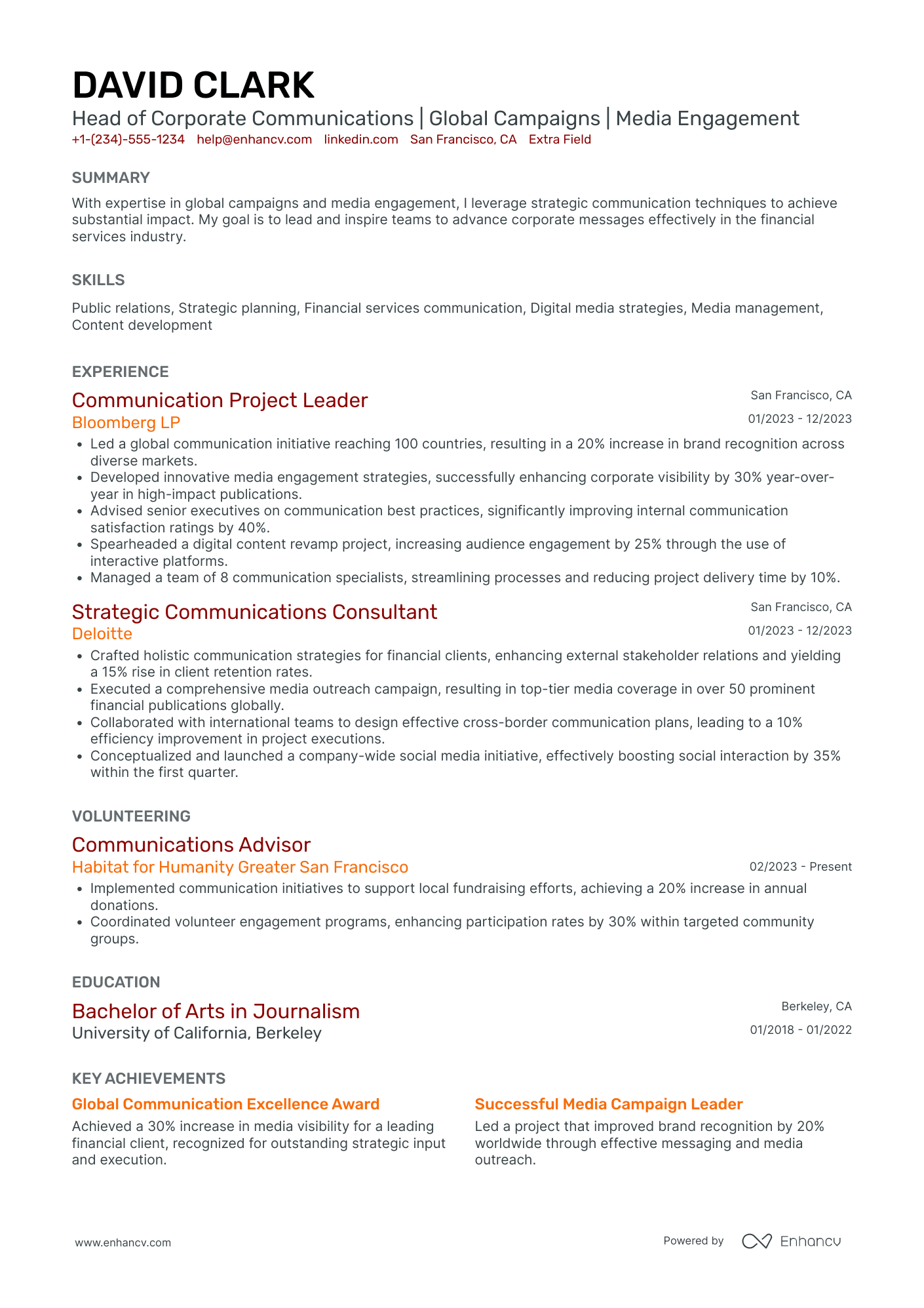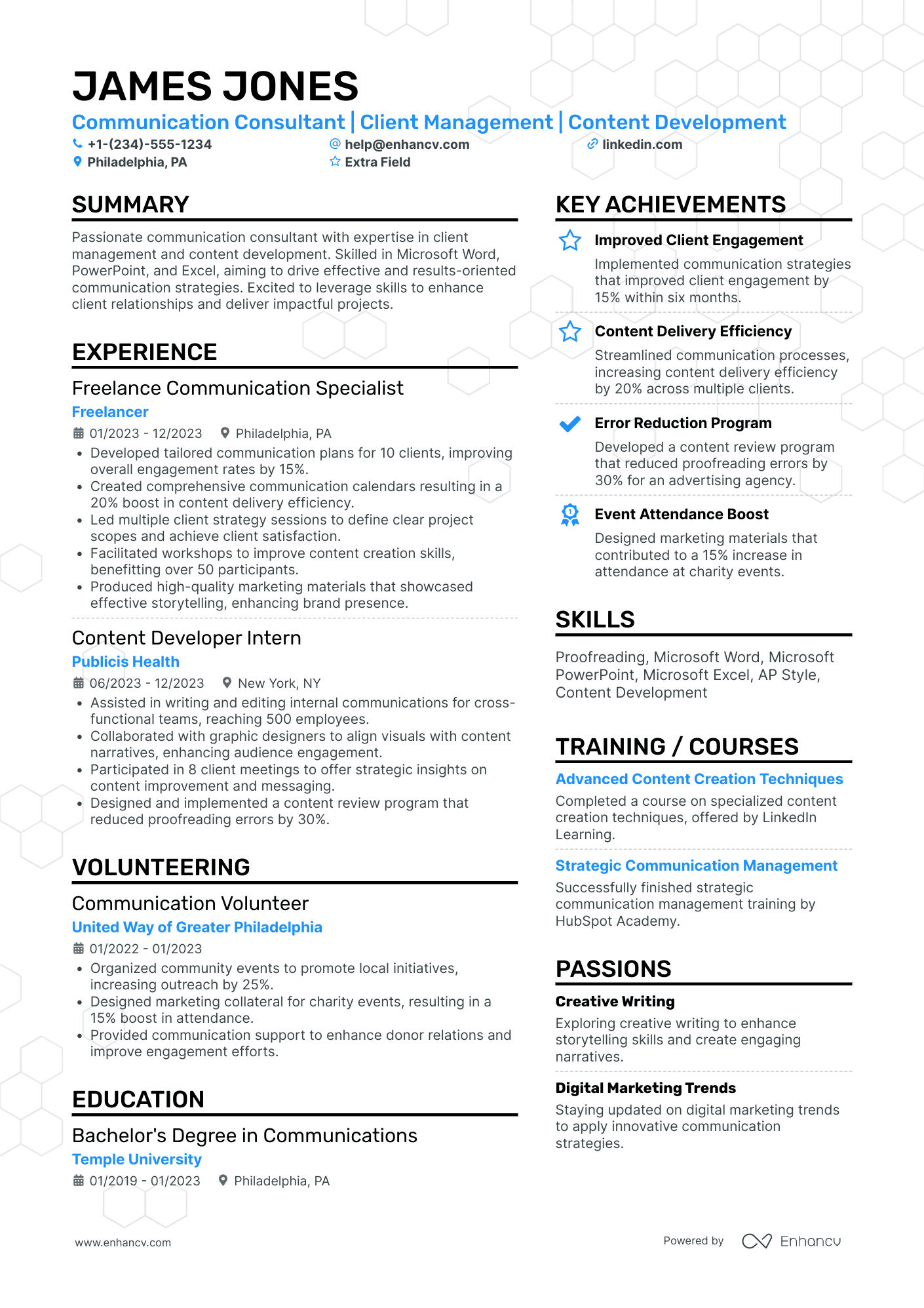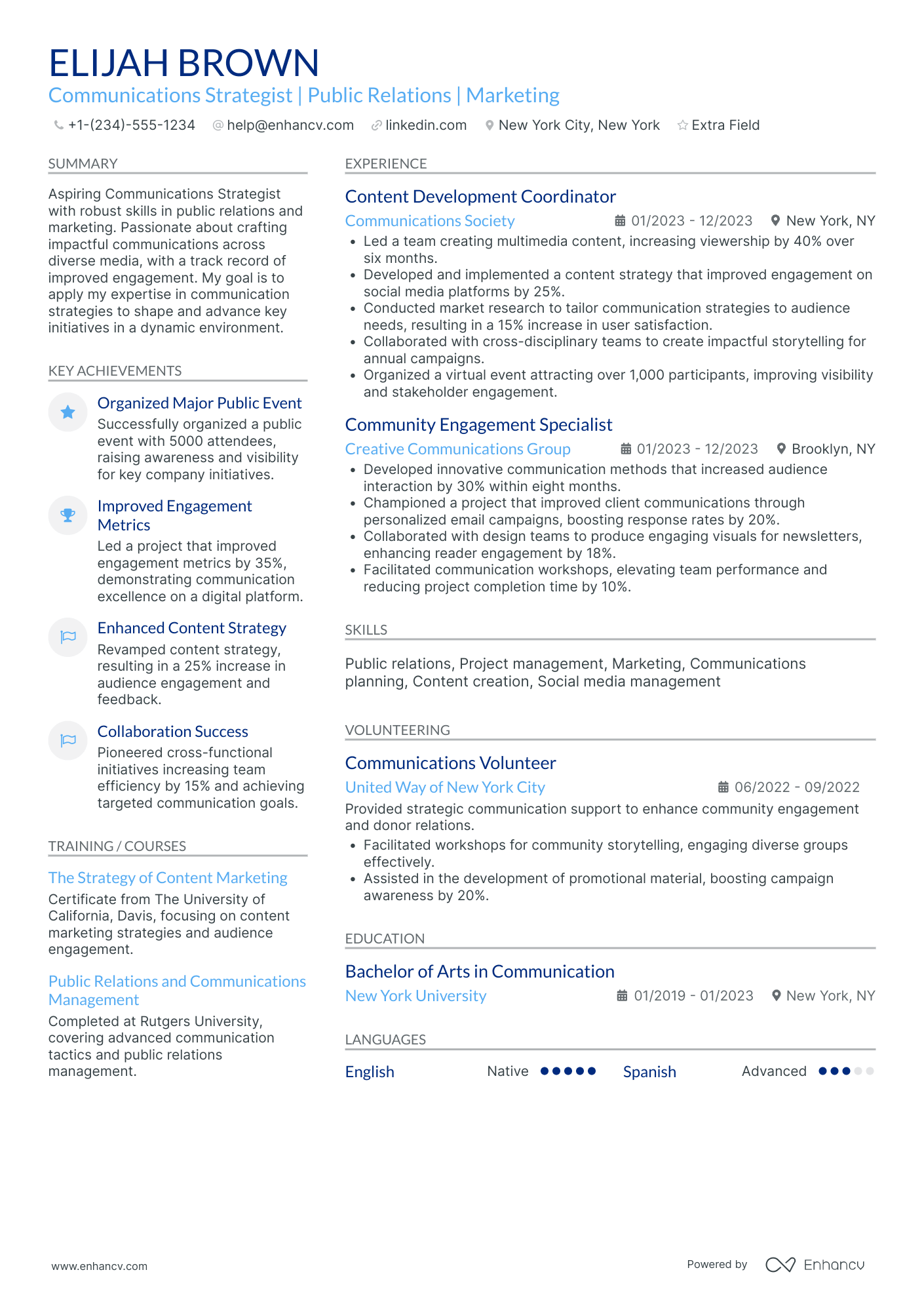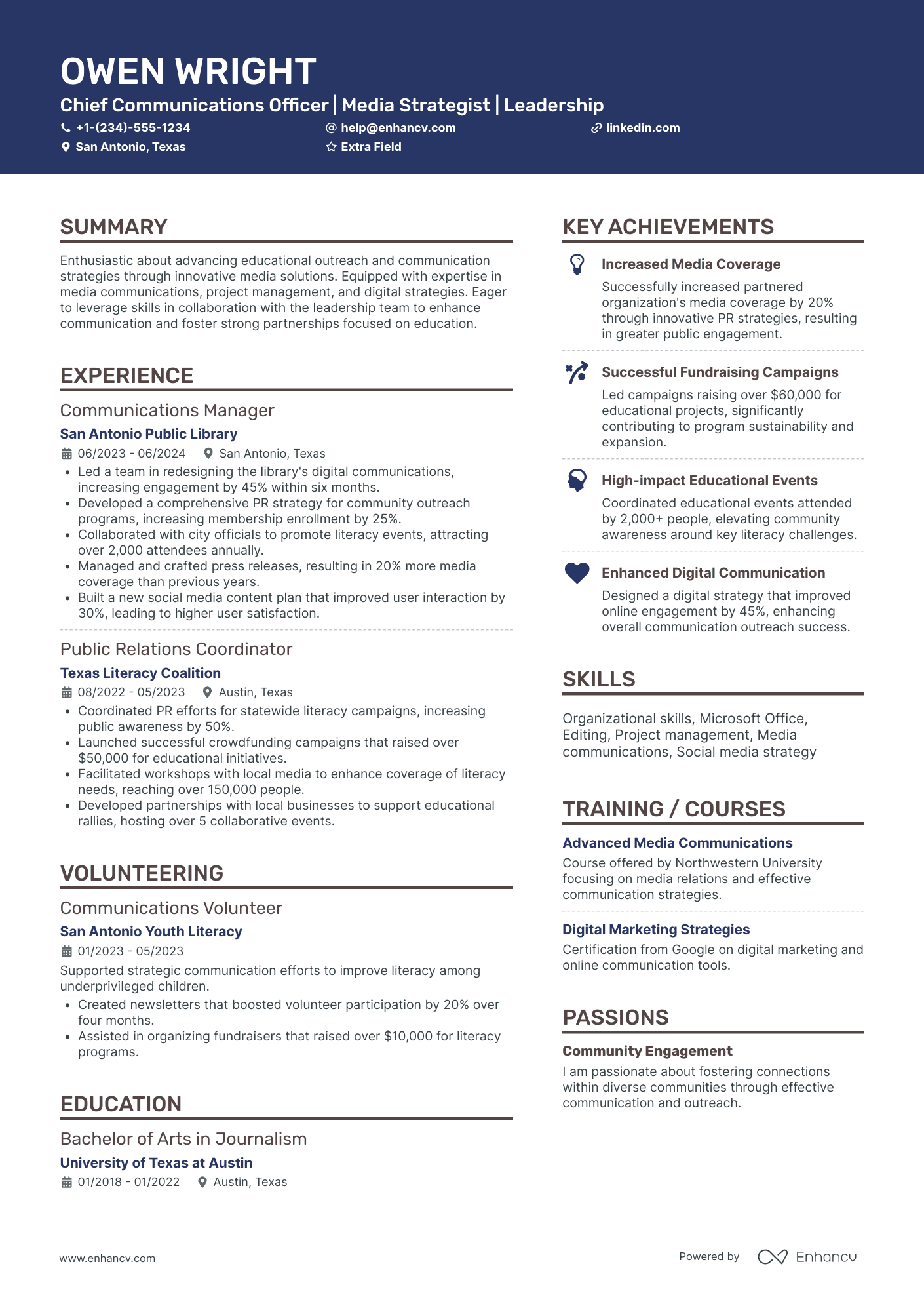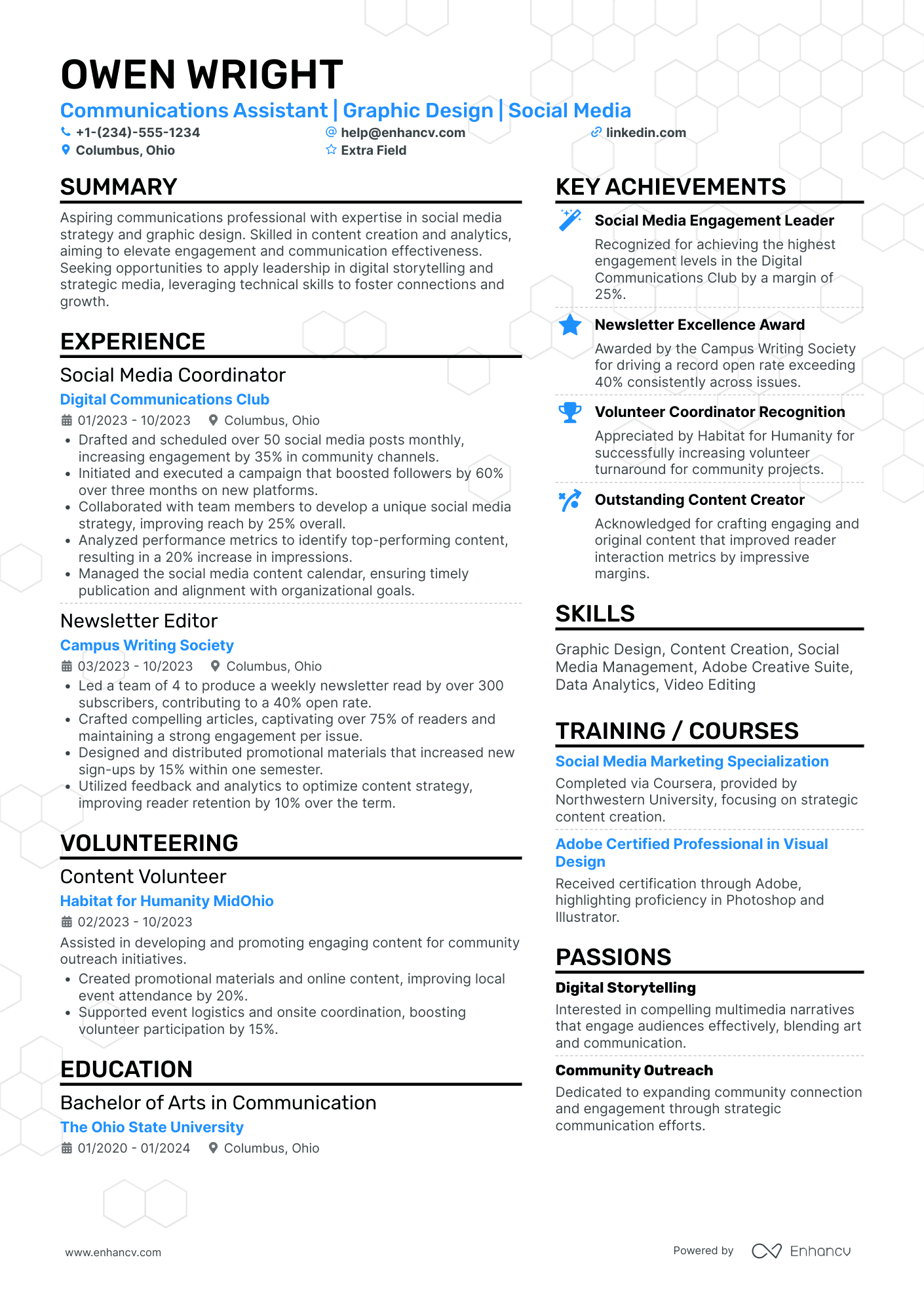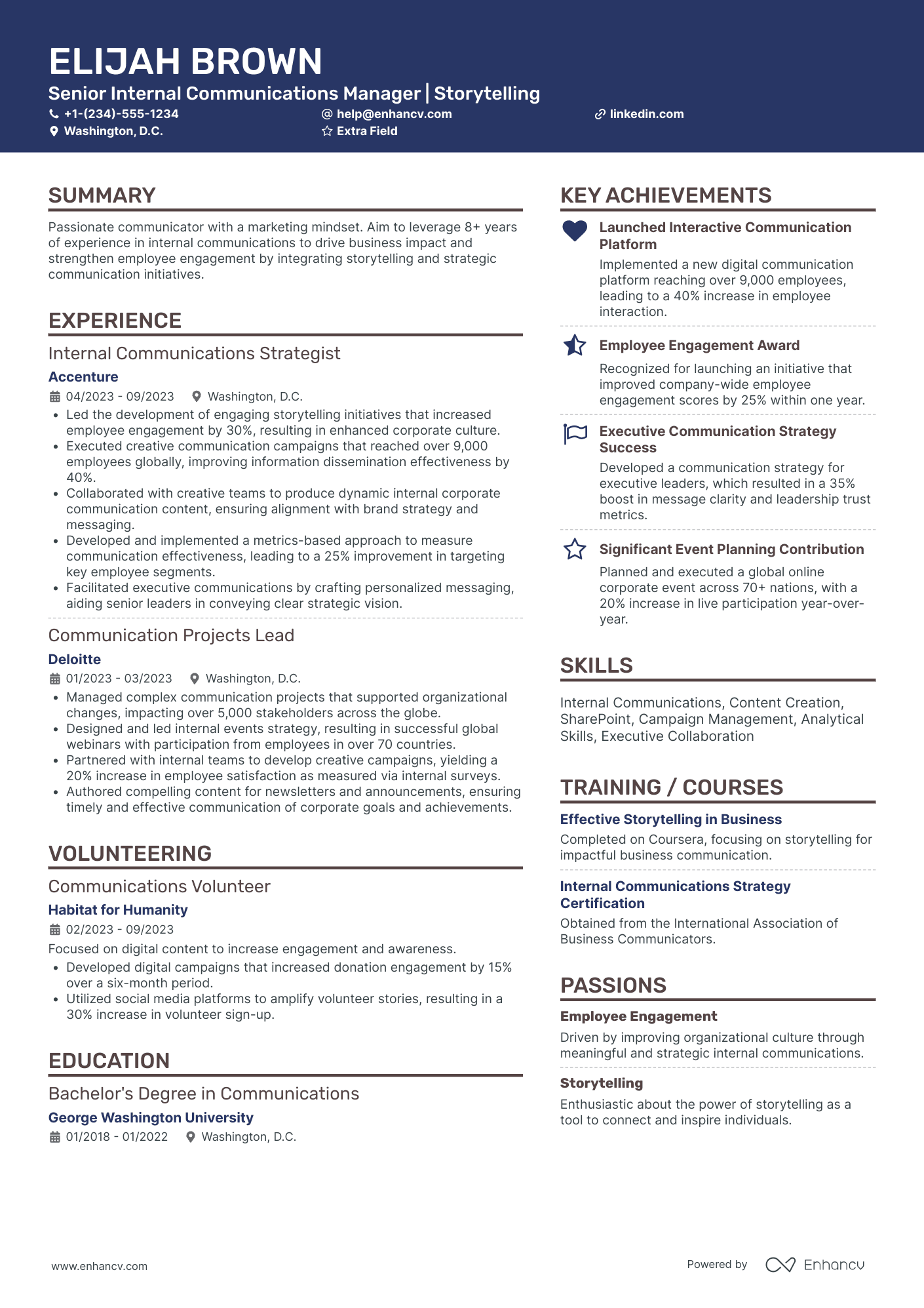If you haven't realized it yet, all organizations are living organisms with one big heart. The internal communications specialist or manager.
The voice of the organization literally courses through their veins.
Internal communications are the professionals who:
- Protect and shape company-wide values;
- Educate and inspire teams in building their culture;
- Promote inclusivity along the organizational journey.
A few years ago, that wasn't the case. Internal communications were seen as "copy-paste managers", spamming inboxes with announcements.
Nowadays, this role has become crucial to achieving:
- more business goals
- maintaining values
- impacting the growth of the organization.
All of this is possible, once employee experience and engagement are improved.
Internal communications is about linking business to its staff members and taking them in the direction the business wants to go in.
James Delves, head of public relations and engagement at the Chartered Institute of Marketing (CIM)
Improving organizational culture is the effect of communication strategies. Designed, led, and updated by internal communications specialists.
Doesn't this sound like an exciting opportunity?
Your internal communications resume is your gateway to this evolving industry.
Our 2026 resume guide curates your best creative, communication, and various skills. To help you find your perfect opportunity today, read on!
What you’ll learn here
- How to curate your experience as a digital-age narrator and brand gatekeeper to make a lasting impression on recruiters?
- The Enhancv step-by-step challenge to start writing your internal communications resume.
- Tips and tricks to the seven key resume sections to provide more depth to your internal communications career.
- How to get into internal communications despite not having those mandatory five+ years of experience?
- 50+ hard and soft skills you don't want to miss out on
Looking for related resumes?
- Diversity & Inclusion Manager
- People Manager
- Benefits Manager
- Talent Manager
- Training Manager
- Change Management
- Continuous Improvement Manager
- Transition Manager
- Chief Of Staff
- Marketing Director
- Chief Marketing Officer
- Marketing Manager
- Social Media Manager
- Brand Manager
- Communication Manager
- Marketing
- Marketing Specialist
- Content Strategist
- Creative Marketing
- Content Marketing
- Community Manager
- Brand Director
- Public Relations Director
- Director Of Communications
- Hr Manager
- Hr Business Partner
- Relationship Manager
- Journalist
- Writer
- Copywriter
From where should you start writing your internal communications resume?
Internal communications (comms) experts' success is based on their ability to understand: from company-wide goals to how departments function.
Even the shrouded-in-secrecy-and-mystery HR one.
Within this section, we challenge you to test your internal comms skills and resume. The outcome of this activity should be obvious: to have your next interview booked in a blink of an eye.
To complete our trial, get ready:
- as many internal communications roles, as you'd like to apply for;
- your good old resume or a draft version of it;
- time, patience, and problem-solving.
Next, you should read up on the job requirements and align those to your experience.
This would in a sense showcase your comprehension abilities. You're able to listen and understand the voice and needs of the people, organization, and HR.
Integrating job keywords would only benefit you - as your resume is sometimes scanned by ATS (Applicant Tracking Systems), tasked to detect 'suitable' vs 'unsuitable' candidates.
Internal communications are expected to be corporate affairs gatekeepers, but also gifted storytellers.
Imagine a modern-day Scheherazade, Brothers Grimm, or Aesop. Congratulations, that's you!
And as such, there are five critical elements you can use from your resume to hint at your abilities.
Panel: When assessing internal communications resumes, recruiters want to see: |
When assessing internal communications resumes, recruiters want to see:
- How well do you draft and set strategic communication plans? Can you deliver tangible outcomes to organizational culture?
- Can you fit in with various team members in cross-functional collaborations? How do you cope in such an environment?
- Are your copywriting abilities up to speed? Can you adapt content for various communication channels?
- What about internal events - have you included those in your overall communication strategy?
- Apart from meeting all checklist requirements, can you bring something else to the table that'd set you apart from other candidates? Remember to use tangible results in your experience to illustrate this.
Now that you've answered these five key questions for yourself, comes the fun part.
It's time to showcase how you've aligned past companies' messages with their vision, goals, and people.
Where communication strategies are adapted to different levels of understanding, trends, communities - you name it.
You can use various resume sections to highlight your capabilities, including
Top internal communications resume sections
- Header and Summary
- Experience
- Skills
- Strengths and Achievements
- Certification and Education
What’s in an internal communications resume header?
Any good press release needs an enticing, yet clear and concise title. Wouldn't you agree with us?
That's the way you should view your header or the top one-third of your resume. It's sort of like the first hurdle you have to leap in the recruitment process.
As, it immediately lets recruiters know if you're apt for the job - or not.
Consider perfecting your resume with these three integral header elements:
- professional contact details (telephone and email)
- link to a relevant and updated portfolio of work (this could be to a website or your LinkedIn profile)
- headline.
The headline is the single opportunity to make a good impression in under a sentence.
You could:
- use keywords in the advert to link with your experience;
- link company values with your own;
- share something that makes you unique;
- focus on your biggest professional achievement.
Whatever you chose, remember to adapt to each position you apply for.
2 internal communications resume header examples
In the first example, the candidate has included just his name, location, and telephone number. Thus, missing opportunity to integrate vital keywords.
The second example checks all the requirements of the perfect resume header. It even goes so far as to include keywords and achievements within the title.
Writing your internal communications resume summary; keywords, achievements, and more
Adapting your resume for individual jobs is the best way to showcase your copywriting skills.
And - as is most often the case with any written body of text - recruiters tend to skim it over with a focus on the summary.
Your internal communications resume summary is yet another section to align experience and achievements with job requirements.
Or you could use it to highlight skills you'd like to use in the next job.
In that sense, you can quantify:
- the years you have within the communications industry;
- project management skills: most noteworthy communication plans and campaigns with outcomes;
- people management: how you have built relationships with key stakeholders;
- content writing: producing content for various sources, including Intranet, media packages, social media channels, etc.
The list of internal communications achievements and skills can go on and on.
Remember that the function of this resume section is not to just summarize your experience or list bullets, but to shine a light on what you do best.
Optimize your resume summary and objective for ATS
Drop your resume here or choose a file.
PDF & DOCX only. Max 2MB file size.
2 internal communications resume summary examples
This example doesn’t work as:
- There is a huge difference between specifying the start date and the actual amount of experience you have;
- Lists roles chronologically without any sense of achievements;
- Uses “I” and is way too impersonal.
Within the example above, you’ll notice that the candidate:
- Has included years and the biggest outcome of their role;
- Used feedback as a measurable result to their efforts;
- Showed how their communication has impacted the big picture of things (low staff turnover rates and increased loyalty).
The alpha and omega to your internal communications resume experience
The top one-third of your resume may have served to help you stand out with keywords and creativity.
Now it's time for the essence of your resume or experience: providing more depth on you as a professional.
The best way to format your experience is via tangible results within the big picture of the organization.
Recruiters hiring internal communications professionals always question your performance based on these four skills.
1. Strategy
Developing and executing monthly, quarterly, and annual plans to
- bring key messages (e.g. change management, new product development) closer to the people;
- make sure that everyone is informed and stays on board;
- assist in reaching organizational goals, impacting the big picture.
Anyone who has designed communication plans knows that they need to be adapted based on engagement, needs, and all individuals' understanding.
Pro tip
Within your experience section, quantify the goals you've achieved based on a dynamic, communication strategy.
2. Collaboration
Your role would obviously be to understand what is important for different departments and communicate across in according to company-wide priorities.
Of course, this comes with a level of influence and negotiation.
Pro tip
Use your resume to demonstrate how your collaborations have assisted with department growth and improving performance.
- Writing
On a day-to-day basis, internal communications experts produce various internal and executive content, based on organizational needs.
Use your experience section to quantify and qualify your abilities to write (and edit):
- presentations and announcements
- blog posts and newsletters
- brand stories, interviews, values
- press releases.
4. Events
Some internal organization professionals are also responsible for organizing internal events.
Consider how your event-management experience has helped influence employee engagement.
Pro tip
Remember that your experience section is a numbers game. It's good to list a percentage, number, or achievement with each bullet item you list.
Internal communications resume experience examples
- •Listed to key stakeholders and managers to write emails for 50+ staff
- •Successfully communicated promotions across
- •Organized annual team building
- •Managed 3 junior communications experts
Here are a few things which could be improved in the above experience section:
- Write out your full role instead of abbreviations to showcase importance;
- Focus not on what you just did, but rather on its outcomes for the organization;
- Include more soft skills keywords to make each experience point stand out.
If you’re wondering what an excellent internal communications experience section should look like, check this example out.
- •Attended biweekly meetings with key stakeholders and managers to understand priorities for employee-wide communication, producing 50+ emails, newsletters, and various content
- •Developed communication plan to announce internal promotions, focusing on giving people the spotlight with interviews - achieved 45% more positive feedback across the board
- •Organized 4 annual team buildings taking into consideration individuals' needs and interests - attendance and engagement at events rose with +250 employees joining us each year
- •Oversaw the work of 3 junior communication experts in helping them develop their copywriting and negotiation skills - ensuring that all +120 annual goals of the team are thus met
Each of the bullet items in the above example focuses on skills and tangible outcomes for the company culture, departments, and individuals.
Is your resume lacking such achievements?
If you’re looking for a way to get into internal communications with less experience, we’ve prepared this next section just for you.
Entry-level internal communications resume tips
Most internal communications manager roles require over five years of experience.
But if you're interested in kicking off your career in this dynamic field, there are still opportunities out there that could help you improve your career prospects.
Prepare your resume for that entry-level role by focusing on these sections.
Education and certifications
internal communications is a two-fold street, depending on the written and spoken word.
That's why you need to be at the top of your game with your higher education. Also, consider getting relevant certificates for the role.
We'll talk more about these two resume sections in the next part of this guide.
Internships
You may think that your summer internship in communications was just to get that stamp of approval.
But in most cases - internships teach you the basics of corporate culture, writing, and communication with more senior staff members.
Integrate those within your resume - no matter the length of your internship, to show your dedication to learning.
Functional Skills-Based Resume Format
This format highlights what you bring about as a professional, your skills, and what makes you unique.
Use it to list both relevant experiences, but also your values.
Internal communications top resume skills
This is perhaps the part that you may tend to undermine, wondering, "What would a skills box do for my resume to make it stand out?"
Trust us, this may be one of the most effective ways to highlight your particular skill set and what makes you unique as a professional.
Now, skills you can write about vary - from hard or technical to soft skills.
The hard skills have more to do with the technology you are apt at using within your role.
This could include your ability to schedule content within various platforms, upload blog posts on the CRM, and management of various Slack or Teams channels.
Recruiters' favorite 20+ internal communications technical skills can be found below:
Technical skills list for your resume
- Internal Branding
- Project Management
- Developing and Implementing Communication Plans
- Designing and Writing Presentations
- Digital and Print Content
- Writing Announcements, Newsletters, Reports
- Writing Blog Posts, Stories, Values
- Writing Press Releases
- Managing Intranet, Social Media Channels, Communication Channels
- Editing/ Proofreading
- Interviewing
- Directing Videos
- Conceptualizing Photoshoots
- Organizing Events
- Editorial Calendar Management
- Integrating Data-Led Solutions
- Working knowledge of MSO
- CRM
- Ability to manage various social media channels
- Ability to manage various communication platforms
- Email writing
How to describe soft skills on your resume
Soft skills are the essence of internal communications - excellent professionals are not merely apt communicators, but their values compass points always in the right direction.
They fight for what they believe is right and never back down.
Your resume is thus an excellent opportunity to show recruiters that there’s more to you than just proficiency and experience.
Be smart about selecting +30 of the following soft skills to add to your resume.
Soft skills list for your resume
- (Communication/ Cultural) Strategy
- Collaboration
- Interpersonal Communication
- Consistency
- Engagement
- Change Management
- Clear and Cohesive Narrating
- Operational Delivery
- Leadership
- People Management
- Overseeing Third-Party Vendors
- Relationship Management
- Negotiation
- Influencing
- Networking
- Morally Responsible (Good Moral Compass)
- Listening
- Comprehension
- Simplifying Complex Ideas
- Fearless
- Yearning For Knowledge
- Creativity
- Organization
- Adaptive To Shifting Priorities
- Working In Faced-Paced Environment
- Meeting Deadlines
- Speaking and Presentation
- Multi Tasking
- Commercially Astute
- Technology Knowledge
- (Social) Media Understanding
- Transformation
- Open Minded
- Problem-Solving
- Empathy
- Confidence
You could further highlight your soft skills within other resume sections like…
Internal communications strengths/ achievements for the win
These two resume sections provide you with the extra space on your resume to further go into detail about your soft skills using achieved results.
To make the most out of a strengths or achievements section:
- Select up to three soft skills that are relevant to the job.
- Use your biggest achievements to prove your aptitude.
- Write simply by focusing on one skill + one achievement per sentence.
The ideal strengths section would be like this:
What about internal communications certificates…
Certificates are another strategic approach to showing recruiters your adaptability in using technical and/or soft skills.
The certifications you’ve attained in the past could thus be linked with content creation and distribution; budget management and allocation; people skills; etc.
There is no limitation as to the ones you should include, just remember to make sure that they are relevant to the role you’re applying for.
Top #15 certificates for your resume
- The Charted Institute of Public Relations Specialist Certificate - Internal Communication
- Udemy - Brand Communications Strategy Masterclass
- Udemy - Effective Corporate Communications
- Global Communication Certification Council - Strategic Communication Management Professional
- Global Communication Certification Council - Communication Management Professional
- Certiport - Communication Skills for Business Professional Communication
- American Institute for Business Management and Communication - Certified Public Relations Manager
- American Institute for Business Management and Communication - Certified Business Communication Professional
- Sales and Marketing Certification Institute - Certified Marketing Communications Manager
- Successful Negotiation: Essential Strategies and Skills - University of Michigan
- High Performance Collaboration: Leadership, Teamwork and Negotiation - Northwestern University
- Accelerated Program for Six-Figure Copywriting - American Writers & Artists Inc
- Content Marketing Training - Reliablesoft
- Content Marketing Course - DMI
- Role of Content Course with Eric Enge - SEMRush
Internal communications higher education: on recruiters’ radar
The resume education section could be a great way to show your dedication to the industry.
As internal communications is a field that does require an academic background as proof of your ability to communicate at all levels.
Best practice indicates that you should list all of your degrees, with their institution, and start/ end dates. If you still haven't graduated, you can include your degree with the expected date.
Make sure to especially highlight your undergraduate or master's degree in relevant fields, like
- Public Relations, Journalism, or Media
- English or History
- Business or Strategic Management
- Marketing or Communications.
Key takeaways
- Your internal communications resume is the perfect opportunity to showcase your experience in copywriting and ability to adapt to different voices. Use its space wisely to curate your best experience.
- When writing each section, consider having a more targeted approach to the job. This would in a sense help you stand out during assessment.
- Whether you chose to focus on skills, key achievements, or various experience items, always remember to list the outcomes/end results. Preferably linked with a number/ percentage.
- Highlight your strengths by focusing on both technical and soft skills (like CRM and relationship management) to show you have the best of both worlds.
- Don’t undermine your education and certification sections, as they show your willingness to learn and progress in the field.
Internal Communications resume examples
By Experience
By Role

